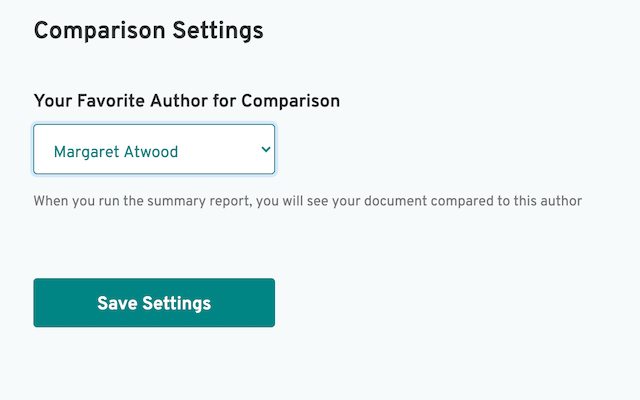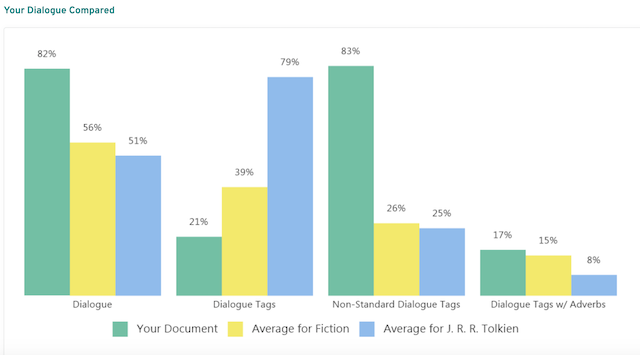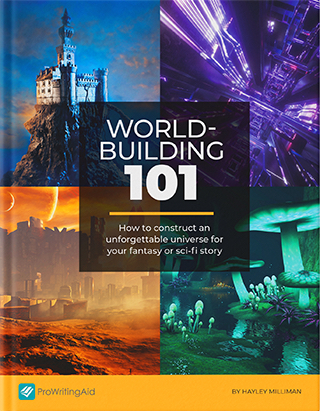
Reading for leisure is great. But reading like a writer? Now that's fun and beneficial.
So, what exactly does it mean, and how can us writers do it?
Balance Your Reading
Reading for writers is like food for athletes; what you consume affects your performance.
A little dessert now and then is fine, just like a pulpy thriller. But you've got to get those vegetables in, too. And by that I mean non-fiction.
Yes, sometimes reading about writing can be a little dry. But not always! And even if it is, it can still be beneficial. Try a full-length book like Anne Lamott's Bird by Bird, or an article like the one you're reading now. Though they might not be what you normally read, make them a regular part of your diet. They'll give you direct guidance on how to improve your craft.
Read with Intent
If you specialize in a particular genre, it's also important to read within that genre. Shouldn't be too hard, since you probably already do that. But make sure you read with a specific goal in mind.
An epic fantasy author might read The Wheel of Time series to get a sense for multi-volume storytelling. A mystery author might read an Agatha Christie novel for ideas on concealing their own story's conclusion. Before you sink your teeth into a book, ask yourself what you're hoping to get out of it.
Analyze Structure
Here's another writing analogy: stories, like buildings, are all about structure. And you can learn a lot about structure through observation.
Bearing in mind balance and intent, we might choose a book about story structure. Joseph Campbell's The Hero with a Thousand Faces comes to mind. It's all about classic story structures and how they recur throughout civilizations and time periods.
But don't stop there. Look for structure lessons in every story you read! Let's examine some basic elements of Harry Potter and the Sorcerer's Stone, for example.
- Setup: Harry is an orphan boy who survives an attack from Voldemort, an infamous evil wizard.
- Disruption of the ordinary: Harry accidentally speaks to a snake.
- Call to adventure: Hagrid shows up and tells Harry he's a wizard. Time to go to Hogwarts!
- Introduction to the new world: Harry and Hagrid go on a shopping spree in Diagon Alley.
I won't cover the whole story, but you get the idea. By examining how a story progresses, we can get a feel for how we should structure our own work. The more stories we read, the more patterns we'll discover – just like Campbell did. That will help guide us when we need help, and give us a path to deviate from when we're feeling stagnant.
Paying close attention to structure while reading also helps when deciding what not to do. For example, have you ever read a story where a main character dies, yet you don't feel sad? A regular reader might shrug and move on. But a writer should analyze this moment. Why weren't you saddened by the death (assuming you were supposed to be)? Was it the amount of time spent with the character? Did something about the character bother you? Was the manner of death not tragic enough? Or was it predictable?
Ask yourself these questions while you read. If you don't like what's on the page, brainstorm ways you might make it better. It's a great way to build solid structures of your own.
Use Author Comparisons
It's not just the structure of a book that makes it readable. Each author has their own individual way of turning a phrase or structuring a sentence that makes their book theirs.
Here at ProWritingAid, we think there's a lot to learn from published authors. That's why we've introduced author comparisons.

In your ProWritingAid settings you can select your favorite author from a list of over 40 published writers. Then, when you run your Summary Report, you'll see how your work compares to theirs.

You can use this tool to find out more about how authors in your genre write down to sentence level. You don't need to match them score for score, but using these comparisons as a basis for trying new things in your writing will help you develop your own unique style.
Please note: This feature isn't available to all users yet, but it will be soon! Watch this space.
Write What You Read
I don't mean draw inspiration from your reading (though that is important). I mean choose a story you think works well, then write or type it, word for word.
(By the way, I don't claim credit for this method; I heard about it on a podcast called Geek's Guide to the Galaxy. However, it's pretty cool, so I thought I'd share it.)
You know how you tend to remember things better when you write them down? This idea is similar. When you rewrite a successful piece of writing, you pay hyper-close attention to what’s on the page (or screen). You replicate the experience of writing the words, which might illuminate some of their magic.
For the record, I wouldn't recommend doing this for an entire book – unless you've got tons of time on your hands. It's best for a chapter or maybe a short story. Also – and I'm going to sound like a teacher here – remember that copying someone else's work and publishing it as your own is plagiarism. This is purely an educational exercise. Don't steal anybody's work, please.
In Conclusion
Sometimes reading is misrepresented as a passive activity. It's not – especially when you read like a writer. Have a go and see what it can do for you.



